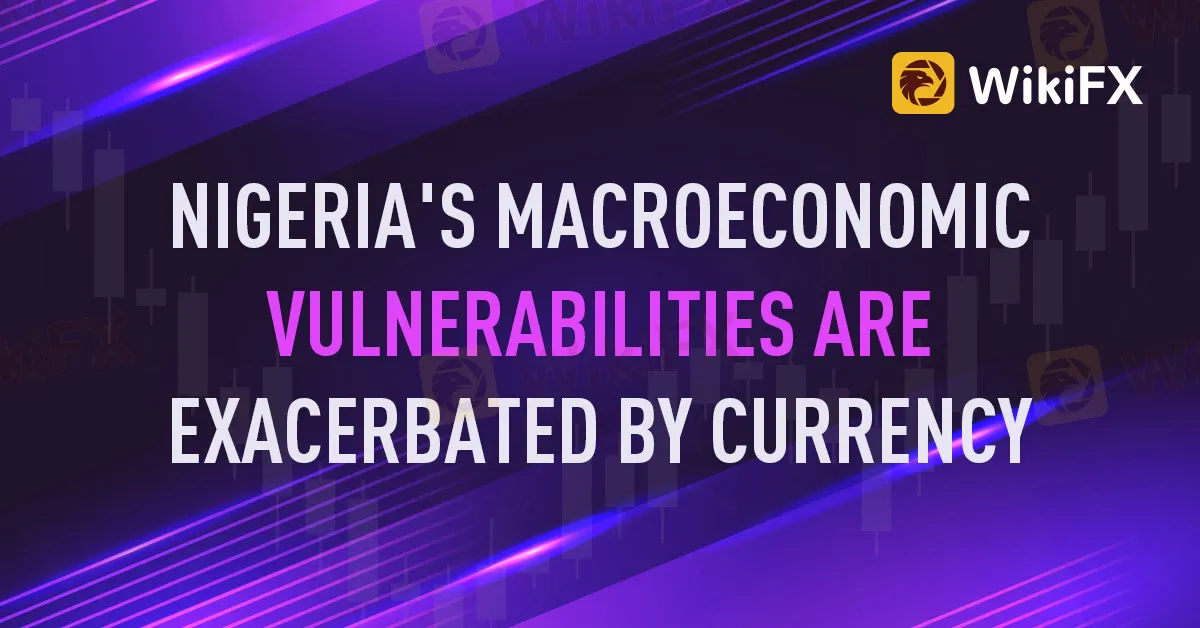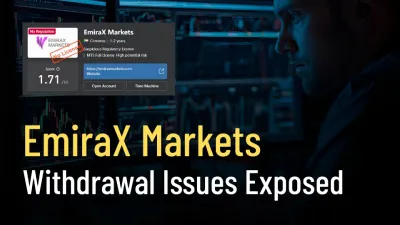简体中文
繁體中文
English
Pусский
日本語
ภาษาไทย
Tiếng Việt
Bahasa Indonesia
Español
हिन्दी
Filippiiniläinen
Français
Deutsch
Português
Türkçe
한국어
العربية
NIGERIA'S MACROECONOMIC VULNERABILITIES ARE EXACERBATED BY CURRENCY SCARCITY
Abstract:As Nigeria struggles to manage with forex market gaps, persistent foreign exchange (forex) shortages have raised concerns about the country's macroeconomic future.

· Naira weakens to N614 per dollar
· Nigeria may slip to lowest global ranking
As Nigeria struggles to manage with forex market gaps, persistent foreign exchange (forex) shortages have raised concerns about the country's macroeconomic future.
MSCI Inc, a global financial group, voiced concern over the weekend that the ability to repatriate cash from Nigeria has continued to deteriorate.
MSCI has said that Nigeria may be demoted from frontier market category to standalone market status, the lowest worldwide rating.
Nigeria has been restricting dollars due to decreasing oil income, which accounts for around 90% of foreign exchange profits. Despite the government accessing the offshore bond market twice this year, the country's foreign exchange reserves have fallen 4% this year to $38.8 billion.
The naira weakened to N614 per dollar at the parallel market from N610 a week earlier, according to Abubakar Mohammed, a Lagos-based bureau de change (BDC) operator.
The global head of Index Management Research at MSCI Craig Feldman, said given the prolonged nature of the issues affecting the markets accessibility, the company has put forth the consultation to reclassify the MSCI Nigeria Indexes.
Aminu Gwadabe, President of the Association of Bureaux De Change Operators of Nigeria (ABCON), also stated that more people and companies are finding it difficult to purchase dollars through banks and are turning to the illicit market. “There is no liquidity, and the banks aren't meeting,” he explained.
The naira rate fell 0.2% to 417.79 on the official market, expanding the margin above the parallel market rate to 47%.
Cordros Capital reported over the weekend that Nigeria's foreign exchange reserves increased by $220.04 million week on week to $38.88 billion. Across the FX windows, the naira rose 0.3% to N420.17 per dollar in the Investor & Exporter (I & E) window but fell 0.8% to N614 per dollar in the parallel market.
Lukman Otunuga, Senior Research Analyst at FXTM, voiced worry that despite oil prices climbing to multi-year highs, Nigeria has failed to capitalize.
He said that a disastrous mix of subpar oil output, weak infrastructure, and fuel subsidies had sapped oil income, which accounts for nearly 90% of foreign exchange revenues.
“The negative effects are still being felt across the economy and local currencies.” However, the dollar scarcity has piqued the interest of MSCI Inc., which is considering lowering the MSCI Nigeria indexes to the position of a standalone market from frontier markets, Otunuga added.
He said that the highest rating is a developed market, followed by developing markets, frontier markets, and lastly standalone markets at the bottom.
Given the difficulty in repatriating funds from Nigeria, this has placed the MSCI Nigeria Indexes in the crosshairs. Such a negative development may hit sentiment toward the countys assets at a crucial period where economic growth remains fragile.
“To add insult to injury, the NGX All Share Index has gained roughly 20 per cent this year in local currency terms. A blockbuster performance when compared to the MSCI Emerging market Index which is down roughly -19 per cent,” Otunuga said.

Disclaimer:
The views in this article only represent the author's personal views, and do not constitute investment advice on this platform. This platform does not guarantee the accuracy, completeness and timeliness of the information in the article, and will not be liable for any loss caused by the use of or reliance on the information in the article.
Read more

Grand Capital Doesn’t Feel GRAND for Traders with Withdrawal Denials & Long Processing Times
The trading environment does not seem that rosy for traders at Grand Capital, a Seychelles-based forex broker. Traders’ requests for withdrawals are alleged to be in the review process for months, making them frustrated and helpless. Despite meeting the guidelines, traders find it hard to withdraw funds, as suggested by their complaints online. What’s also troubling traders are long processing times concerning Grand Capital withdrawals. In this Grand Capital review segment, we have shared some complaints for you to look at. Read on!

EmiraX Markets Withdrawal Issues Exposed
EmiraX Markets Review reveals unregulated status, fake license claims, and withdrawal issues. Stay safe and avoid this broker.

ADSS Review: Traders Say NO to Trading B’coz of Withdrawal Blocks, Account Freeze & Trade Issues
Does ADSS give you plenty of excuses to deny you access to withdrawals? Is your withdrawal request pending for months or years? Do you witness account freezes from the United Arab Emirates-based forex broker? Do you struggle to open and close your forex positions on the ADSS app? Does the customer support service fail to respond to your trading queries? All these issues have become a rage online. In this ADSS Broker review article, we have highlighted actual trader wordings on these issues. Keep reading!

INGOT Brokers Regulation 2025: ASIC vs Offshore License - What Traders Must Know
Explore INGOT Brokers regulation in 2025: Compare their ASIC and Seychelles FSA licenses, understand trader protection levels, and learn about potential risks in this detailed guide.
WikiFX Broker
Latest News
Consob Targets Political Deepfake “Clone Sites” and Unlicensed Platforms in Latest Enforcement Round
WikiEXPO Global Expert Interviews: Gustavo Antonio Montero: ESG in Finance
Global Guide to Finding Forex IBs/Brokers — Share Your Pick and Win Big!
Trump tariffs are helping drive U.S. beef prices to new highs
Mitrade Arabic Platform Targets MENA Gold Trading Boom
Israeli Arrested in Rome Over €50M Forex Scam
Scam Alert: GINKGO-my.com is Draining Millions from Malaysians!
New FCA Consumer Alert 2025: Important Warning for All Consumers
EmiraX Markets Withdrawal Issues Exposed
Trading Pro Review: Scam Broker Exposed
Currency Calculator



